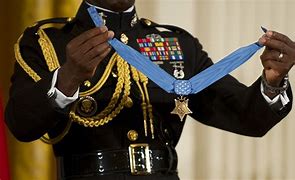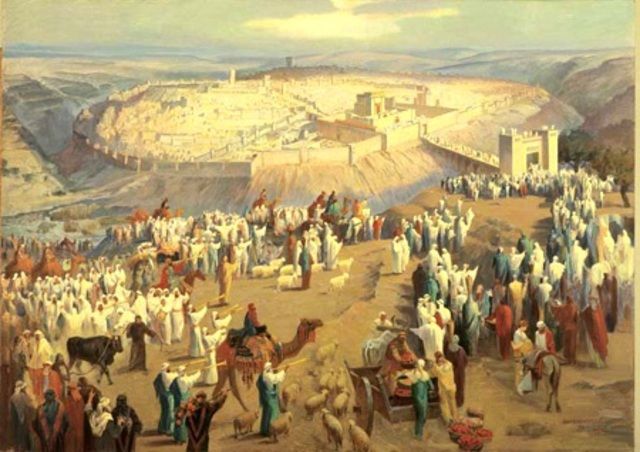Value of Honour

Ancient Tradition
Judah, Issachar and Zebulun encamped towards the east, Reuben, Simon and Gad to the south, Ephraim, Menashe and Benjamin to the west and Dan, Asher and Naftali to the north. This is the order the Torah (the Jewish bible) tells us that Israel travelled around whilst they were in the desert and the structure they dwelled in at resting places, those mentioned first were first to set off, followed by the group in the south, then the Aron Hakodesh (the ark) and the Tabernacle, followed by the 3rd and 4th group. But previously the Torah, when first enumerating Israel with their full count puts the second group before the first.

Before we tackle why this is so, we must review why there was reason to repeat the count of the Jews here, twice. Rashi explains that this is due to the dearness that God had for Israel that they were counted so many times, similar to money which a person would want to recount or marbles in which a child has found dearness in will be recounted and cherished many times. But what about the change in order?
The Ibn Ezra (a famous Jewish scholar) explains that the first time the tribes were mentioned, they were called due to a mixture of both how much honour should be bestowed upon a tribe and the group they were in. Reuben is the firstborn, so was to be named first, followed by Simon the second-born and Judah (Levi is not counted), Issachar and Zebulun complete the children of Leah - the first wife of Jacob. Next comes the children of Rachel - Ephraim and Menashe (although not in age order, the same way that Jacob blessed them) and Benjamin the youngest. Then Dan the head of his group, Asher following in his group, Gad for being the eldest of Zilpah and finally Naftali. An underlying theme, the message, in being so careful with the order of how the tribes were mentioned is an example as to how careful with honour we should be. There is a value in stature and ability but also inherent is the value of age. We are called upon to have respect for those older than us regardless of our success above theirs or abilities more than theirs.
Honouring the Elders
There is a famous story relating to this, where there was an old rabbi flying on a plane with his grandchildren assisting him, helping him with the things he needed throughout the duration of the flight. The person next to him inquired as to how amazing it was that this rabbi’s grandchildren were so close and helpful to them, whereas this gentleman who has not had so much contact with his grandchildren in quite a while. The rabbi explained the reason behind this result, the source which caused such a sparse separation in results, “in Judaism we believe in a concept of ‘Yeridat Hadorot’ the descent of generations, as each generation gets further from the communal reception of the Torah at Mount Sinai the level of Torah learning somewhat decreases, therefore we cleave to and respect older generations who are that little bit closer. However, you may believe that man came purely from an ape (not to go into the discussion of evolution and Torah, whether there is such a concept and if it fits in with Jewish belief) and that every step further away people are greater as they are more developed than that ape.

Humility in Hounour
Honouring another person requires a lot of humility, you have to admit to someone else being great. This causes people to fall into the pit of believing that this makes themselves low, they think of themselves to be weak when they admit to another strength. For this we learn in ‘Ethics of our fathers’, “Who is honoured? He who honours others.” True honour goes to a person who is so humble and sees the truth, his actual level with no comparison to another and can therefore give honour to another. The Hebrew word for honour is “Kavod” and can be used in other places to mean heavy. The passive intensive form used at the start of the maxim - who is heavy? Someone who makes others heavy. A person who raises others praise and honour makes himself heavy in that same way. True recognition of other people's strengths builds up ourselves and makes us more available to these character traits.
The Power of Togetherness
With regards to the specific order of how the camp of Israel was arranged, the Kli Yakar explains that the four camps in the 4 different directions represent 4 different abilities. In the east, the quality of wisdom - all of the tribes in the East are those described in connection to or even directly with Torah study. The tribes to the south of the Tabernacle relating to middot - especially humility. The head of the tribes found to the south of the Tabernacle include Reuben, which fits in especially well with our explanation before, that honour goes to those who honour others and lower themselves. To the west, the tribes represented strength, it is a noticeable increase in seriousness and effort once a person gets to the 3rd time, this is when the novelty wears out and it requires dedication to continue the original plan. Finally, to the north, the tribes represented wealth, they were all those promised to be in special areas of precious and fertile land.
The concept of having all these 4 character traits surrounding the Tabernacle, different types of people with different attributes all spread equally around where the Presence of God rests shows us that although some of us are stronger in one area than another, we may fall short in many places, if we come together as one our strengths add up and we are considered as one whole. One trait is not better than another, neither is a fault detrimental. As long as we work with the true intention of performing the will of God and we do our best in every situation, as a collective it is as if each and every one of us reach our perfection.